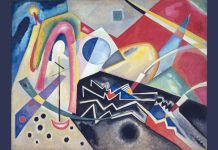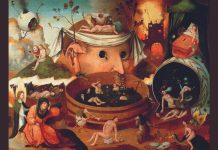"Cinema is necessary to distract from reality because reality is poor. That’s why I want another life, why I want to make films," says Paolo Sorrentino. The filmmaker from Campania, more filled with emotions than at the Academy Awards, won the Silver Lion in Venice with The hand of God, his most autobiographical film. He recounts to us the accident that one night took his parents away, his Naples, Maradona who saved his life, and the encounter with cinema. An intimate version to let feelings speak but not different from the usual director who comes up with new interpretations in a context that arises emotions.
One needs some courage for such an autobiographical film. Did you think of having it, or did you discover it along the way?
I see myself as fearful in everyday life. At work, I think I’m rather reckless. Here, I needed a different kind of courage, more in writing than in making the film, in which everyday life nearly made fears disappear.
In what is this film different? Some people talk about a turning point
When I started shooting, I realized that this project was different from the previous ones: it was more minimalist and straightforward; it let feelings and emotions come out.
When did you think about sharing your story with the public?
I felt ready when I was fifty. As a young man, love and pain were doubly connected. It seemed that I could change the story into a film, irrespective of my needs and requirements.
Is there something that you grasped of yourself and revealed to us?
I hope I explained some childhood behaviour that persists in adulthood. Some pain is so devastating as to interrupt juvenile light-heartedness. You find yourself suddenly adult even though you continue to remain a child.

The title is also a philosophy of life. What does it represent for you?
Those words are wonderful but paradoxical because they were said by a footballer about the only body parts that can’t be used. It seemed to be a perfect metaphor for fate and divine power. And I believe Maradona had a semi-divine power.
How did you feel when he passed away?
Unfortunately, I could not talk and show the film to him. The sense of loss which his departure provoked is a feeling I cannot express in words. Or maybe I am not able to do it.
Can you think of Tony Servillo as your lucky charm?
Whoever asks me why I made the umpteenth film with this extraordinary actor, I reply: Look where I got by working with Tony.
What is Antonio Capuano’s major lesson, your guardian spirit?
One of his characteristics, very useful for me, is the ability to create a conflict. It’s the conflict, not the action, that inspires most of what’s positive in film creation. Also, Antonio transmitted an inexhaustible vitality, which I tried awkwardly to imitate.
In telling your story, with what would you have never come to terms?
Film narrative has essential requirements and needs that truth and fiction are entangled. I would never have betrayed my feelings and emotions of those years.




















